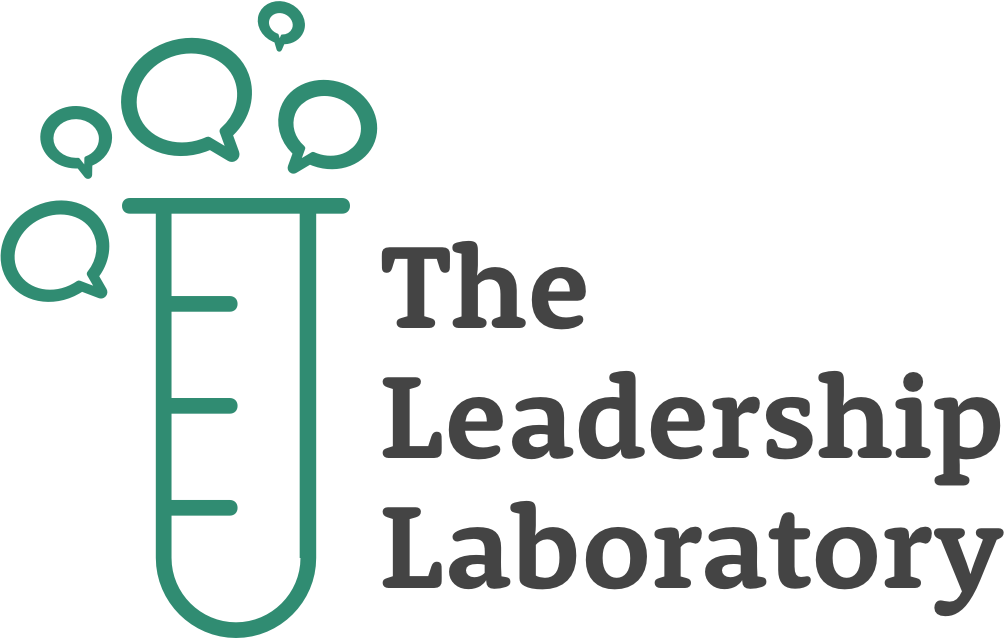Written by Jacob Goldstein — Executive Director
Interested in workshops on this topic for you and your team? Visit the Leadership + Management page for recommended interactive learning experiences from The Leadership Laboratory for emerging and established leaders in your organization.
We’ve all been there — a series of successful interviews, the promise of a budding romantic relationship, or navigating a crucial sales pitch process. As much as we try to stay cool, our brains have plans of their own. Somehow, and especially during a job search, we expend more time and energy than we’d like to admit daydreaming with this new possibility on our minds.
In his musical Follies, Stephen Sondheim writes about that all-consuming feeling: “The sun comes up, I think about you. The coffee cup, I think about you. I want you so, it’s like I’m losing my mind.” Even for the most secure and confident among us, this anticipation can become all encompassing! It’s because we’re excited: we read and re-read every email for clues, reflect on each piece of feedback in the interview process, and eagerly await that call for information on the next step. Here, it’s easy too to romanticize; although we don’t want to get our hopes up, it just happens naturally. We start to research what that commute might look like, browse some of the new lunch spots in the area, or even imagine our outfit for the first day of work. We think of new co-workers we’d meet, new challenges we’d get to tackle, and how this might inspire strong personal and professional growth.
And sometimes, it happens! We get the gig, and all that time and energy we’ve spent attracting what (we think) we hoped for comes to fruition. And other times, it doesn’t. There was someone else; another candidate in the process for longer, or another individual who was a stronger fit. It stings, to varying degrees, especially when every indication was that the process was moving in the right direction, and sometimes the hardest part is that we won’t get the chance to investigate the world we’ve imagined and built up and created in our minds.
So what do you do when the rejection comes?
The dreaded email: we’ve decided to go with someone else. Especially when we felt so confident about the interview process, it can be a punch to the gut, sending us spiraling into the five stages of grief. When you were so willing to commit 100% to the opportunity, it’s devastating not to be “chosen”, and can easily make you question your skill sets and worth. Since it was never fully a reality, we’re often mourning the loss of something we idealized, and somehow have to find a way to pick ourselves back up. Naturally, this is easier said than done, and we’re certainly allowed to have an Elle-Woods-from-Legally-Blonde level cry for a few days as we process this rejection. For any setback or heartbreak at the loss of something I really wanted, I always give myself permission for 24 to 48 hours to feel really, really down. Sometimes it takes longer than that, but allowing ourselves to feel that disappointment gives us the time and space we need to process.
And after a few days, we have some choices to make. What do you do when that rejection comes? Here are four ideas to consider:
1. You end with grace...
Anyone in a sales capacity knows how much rejection we face. Sometimes, another vendor came in first, the organization went in another direction, or budgets were suddenly cut. How we close out the relationship is equally as important as how the relationship went throughout. I cannot begin to tell you how many times I’ve navigated a sales process that fell short and ended positively, only to hear back from the organization weeks or months later to revisit that same opportunity, or discuss a new one that might be a strong fit. Ending with grace and a positive impression makes a world of a difference, and showcases your true colors.
Another example: every year, I enter the lottery to win tickets to Saturday Night Live. Traditionally, you receive word that you’ve won just a week or so before the show, and it’s a rolling process for each episode. For a number of years, I never heard back, until one fateful day when I found out I had won! The problem? I had a professional commitment that weekend that I simply couldn’t reschedule. I called the SNL Ticket office and explained the situation, asking if I could be considered for a future show instead. Unfortunately, I was told that since my name was already drawn, I would be out of the running and would have to wait to enter again the following year. I emailed the team to officially decline the tickets, and included a genuine thank you note for their time and help. As the SNL season continued, I didn’t think much of it, until I got another email telling me I had won tickets again, this time for the season finale hosted by Tina Fey. I am convinced that the only reason I got the tickets is because of that note — it left an impression on someone, and they kept my name up for an even more special episode. Being kind in the face of rejection pays dividends in the end.
2. AND remain open to future possibilities...
From personal experience, staying in touch and being open to future connections has served me well in a variety of personal and professional situations. In the job search, if this was something you felt that strongly about — be it the organization, the opportunity, or a co-worker / hiring manager — it’s generally worthwhile being open to future contact if and when the time is right. Traditionally, it’s the organization or hiring manager who will make that first move, though as a job seeker it’s certainly fruitful to reach out again a little ways down the line. Ideally, by that time, you have changed as a professional, and likely so has the opportunity, and the alignment may be an even stronger fit than it was before.
I often reflect on a story of a friend of mine, whose grandmother got a call from a potential suitor when she was in her early 20s. She and her suitor had known each other off and on for years, and one day he called her to finally ask her out. She was flattered, but there was one problem: she was heading out the door to attend a party that evening in celebration of her own engagement with her now fiance. Her suitor was crushed, though eventually married someone with whom he was incredibly happy. Years went on, and as they stayed in touch peripherally, circumstances eventually brought them back together, resulting in 25 years of marriage at the end of their lives. It was the right place, just the wrong time, and the right time eventually presented itself. The same thing can be true in the job search processes.
3. AND you find a way forward...
While the rejection hurts — a lot — we still have to find a way forward. Until we know the bigger picture, in the moment it easily feels like you’ll never fully recover, and this will always be “the one that got away”. When I worked internally in leadership development and was in the thick of the job search myself, I remember a position I was in the running for. I was getting incredibly positive feedback from the team and hiring manager, and it was more or less implied that I was the only serious contender for the role. Imagine my surprise when I learned that after an incredibly tough decision process, they decided to go with a different candidate, who seemingly came out of left field. I was crushed and totally blindsided. I took the time I needed, and ultimately found a way forward.
Two things happened — the first was that after taking a few weeks, I continued on my job search. Where did I land? At an opportunity that ended up becoming a dream job, and was easily the most influential professional experience of my career. I simply did not know an opportunity like that could have existed, and had significantly more professional growth in this role than I ever could have possibly had in the role I didn’t get. The kicker? A few months after I started the dream job, I learned that there had been some budget cuts at the other organization, and that unfortunately the entire team I would have been on had been eliminated. If I had gotten that other role, I would have been back on the job hunt, and would have missed out on the incredible opportunity I was currently at. Sometimes, trusting yourself and the process leads you to where we need to be, and the misdirection of a rejection is actually a push towards something even more meaningful.
4. AND you reflect on what you've learned.
When you have the energy to do so again, it’s so important to take time to reflect on what you learned in the process. How did this experience grow your confidence? What did it teach you about what you’re looking for, what you’re not looking for? Perhaps you found what felt like the perfect job, or hiring manager, or organization for you — while the position may not have worked out, there’s a lesson in knowing that what you dream can in fact be a reality, and that it’s worthwhile to have such high standards. Sometimes, it was the experience itself that is what sets you up for success for the next opportunity; perhaps you might not have been able to land that future job without having learned how to successfully answer those series of interview questions in the job you didn’t get. Think back to the feedback you received, and remind yourself what worked and felt right. When faced with a rejection like this, especially when we’ve gotten so far into the process, while our hopes may be dashed, my hope is that your confidence is not. Take the time to really sit and reflect on what this experience taught you, and how it can propel you to what’s ahead.
The Leadership Laboratory is a nation-wide, Chicago-based learning and leadership development company. We build and facilitate custom team and leadership development workshops aimed at transforming the way we lead our work and people. Through interactive workshops, participants will experience customized professional development for emerging and new leaders, established and senior leaders, and teams of all sizes. Feel free to browse our website, www.leadershipdevelopmentlab.com, to learn more about our team building workshop and leadership development programs.

